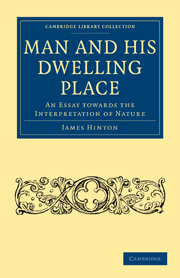Summary
He who has seen obscurities which appeared impenetrable in physical and mathematical science suddenly dispelled, and the most barren and unpromising fields of inquiry converted, as if by inspiration, into rich and inexhaustible springs of knowledge and power on a simple change of our point of view, or by merely bringing to bear upon them some principle which it never occurred before to try, will surely be the very last to acquiesce in any dispiriting prospects of either the present or future destinies of mankind.
Sir J. Herschel: Disc. on Nat. Philosophy.IT has been well observed that the child and the savage invent an explanation of every thing they do not understand, whilst the man whose powers are matured and disciplined investigates. He has learnt to be patient, and to wait for grounds of knowledge before he supposes himself to know. Thus progress is made. From investigation comes discovery. Our partial and incompetent reason, brought into contact with the great facts of nature, becomes itself enlarged. For the natural suppositions by which man explains the unknown are not equal to the scope of things. They express himself, his ignorance, his limited relations.
All advance in knowledge is a deliverance of man from himself. Slowly and painfully he learns that he is not the measure of truth, that the fact may be very different from the appearance to him. The lesson is hard, but the reward is great. So he escapes from illusion and error, from ignorance and failure.
- Type
- Chapter
- Information
- Man and his Dwelling PlaceAn Essay towards the Interpretation of Nature, pp. 1 - 20Publisher: Cambridge University PressPrint publication year: 2009First published in: 1859

